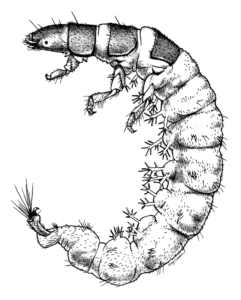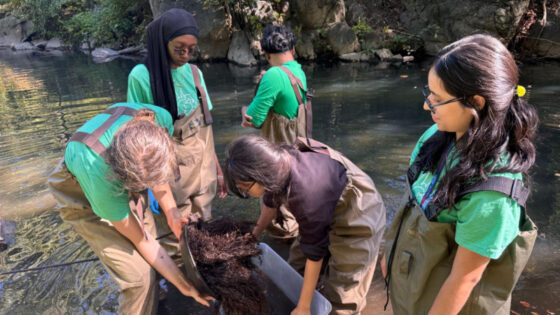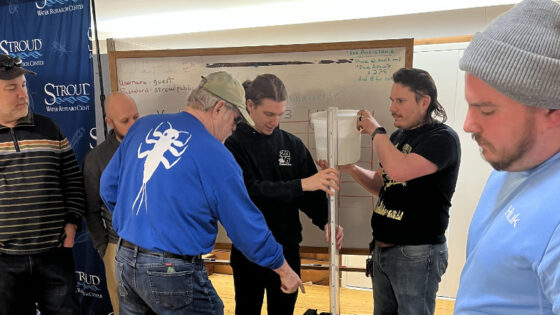For more than two decades, the Leaf Pack Network® of teachers, students, and citizen monitors around the world have used leaf packs to investigate their local stream ecosystems. Building on this success, scientists and educators from Montana State University and Stroud Water Research Center have created an exciting extension of the Leaf Pack Network: the Rock Pack Experiment.
The team discovered that like leaf packs, rock packs simulate natural processes in healthy streams while creatively engaging everyday citizens and students in freshwater science. The new programming integrates many of the concepts that make leaf packs powerful learning tools, such as the role of freshwater macroinvertebrates in food webs and water quality.
 The Rock Pack Experiment combines STEM topics of engineering, ecology, geomorphology, and mathematics in stream ecosystems through the world of the net-spinning caddisfly. Interactive and hands-on activities can be used indoors or outdoors in a 7th-12th grade lesson plan to get students excited about insects and rocks in streams and to learn interdisciplinary science skills and real-world science research applications.
The Rock Pack Experiment combines STEM topics of engineering, ecology, geomorphology, and mathematics in stream ecosystems through the world of the net-spinning caddisfly. Interactive and hands-on activities can be used indoors or outdoors in a 7th-12th grade lesson plan to get students excited about insects and rocks in streams and to learn interdisciplinary science skills and real-world science research applications.
The Rock Pack Experiment/Leaf Pack Network is part of the WikiWatershed® Toolkit, a Stroud Water Research Center initiative to help citizens, conservation practitioners, municipal decision-makers, researchers, educators, and students advance knowledge and stewardship of fresh water.
Learn More About the Rock Pack Experiment



